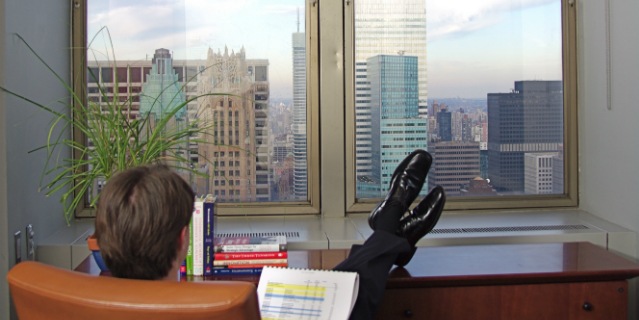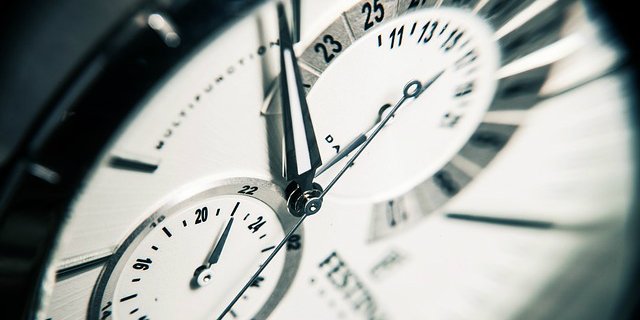We all naturally experience a midday slump, and it’s due to fluctuations in our internal circadian rhythms. For most people, this dip occurs between 2:00 p.m and 4:00 p.m. During this time, your body temperature decreases and alertness also declines. This flux leaves many people yawning at their desks after lunch and reaching for an extra cup of coffee or sugary pick-me-up. Although the post-lunch dip in energy has biological roots, there are a few ways you can help yourself stay focused and alert through the afternoon by choosing smarter foods and incorporating a few energy-boosting habits into your routine.
1. Choose smarter foods.
Sugary foods and simple carbs can provide a short burst of energy, but may leave you yawning again in no time. On the other hand, foods with protein, healthy fats, and complex carbohydrates preserve energy for hours. The idea is to maintain blood glucose levels in order to minimize your energy dip. Here are few smart foods to have on hand for afternoon snacks:
Protein rich snacks like boiled eggs, cheese, turkey, smoked salmon or almonds. Chocolate, particularly flavanol-rich dark chocolate or even low-sugar cacao nibs. Apples, oranges and blueberries are also rich in flavonoids and easy to bring along. Staying hydrated with plenty of plain water helps boost alertness. Green tea and black tea are rich in energy-boosting compounds including caffeine.
Other tips include eating a breakfast rich in healthy carbohydrates which helps sustain energy throughout the day, and avoiding overeating at lunch which can contribute to drowsiness.
2. Take a very short nap after lunch.
Napping is an effective way to boost energy in the afternoon, if it’s done right. If your goal is to overcome drowsiness, the ideal midday nap is between 10 and 20 minutes. Longer naps can actually make you feel more drowsy upon waking, so its best to keep them short. Take your nap during the time you usually feel tired if possible, making sure to set an alarm so you’ll definitely wake up. Once up, do some quick stretching or jumping jacks and drink some water to get energized. If you are partial to caffeine, studies suggest consuming it before your short nap for the best effects.
3. Get moving or take a walk if you feel tired.
Sitting at a desk for hours can also contribute to drowsiness, and boredom as well. During your afternoon slump, make it a point to get the blood flowing with a little activity every so often. A walk outside in the sunshine might be best, but even a jaunt to the water-cooler, running in place or jumping jacks for a few minutes can all be beneficial for alertness. Periodic activity could have other health benefits for sedentary workers, too.
4. Have a sweater or jacket at your desk if you feel cold.
An internal temperature drop is a key part of the circadian pattern that contributes to the post-lunch energy dip. Keep a sweater or jacket around to warm yourself back up and fight the yawns, especially if your workplace is on the cooler side.
5. Keep rooms brightly lit or sit by a window.
Light also plays a role in circadian rhythms, and getting plenty of natural sunlight in the afternoon can be helpful for limiting drowsiness and for normalizing sleep schedules as well. Sit by a window if you can, or keep your workspace brightly lit if there are no windows nearby. Dimmer rooms can make nodding off harder to resist.
6. Get a good laugh in.
Another instant way to fight mental fatigue is to simply laugh. Laughter engages mood and cognition-boosting chemicals in your brain, helping you feel better, less stressed and feel more alert. Take a look your favorite funny YouTube videos, browse quiet giggle-inducing GIFs, or share a funny story with colleagues – all in the name of productivity.
7. Practice good sleep habits at night.
Sleeping well at night and practicing good sleep hygiene also helps avoid daytime fatigue. Make sure you are allowing yourself adequate sleep time every night (at least seven hours for most adults), and try to stick to a regular sleep and wake schedule every day. An evening routine with sleep-friendly habits can also help.
Though some of these tips may seem a little counterintuitive, science shows that energy-boosting foods, activity, light, naps and even laughter can work to counteract your body’s natural afternoon dip in energy. Naps and activity breaks in particular can actually make people even more productive and creative, boosting alertness and contributing to physical and mental health. Now there’s no excuse not take a siesta and jump around at work! Share: What do you do to get through the post-lunch dip in energy? Have you tried any of the hacks above?





